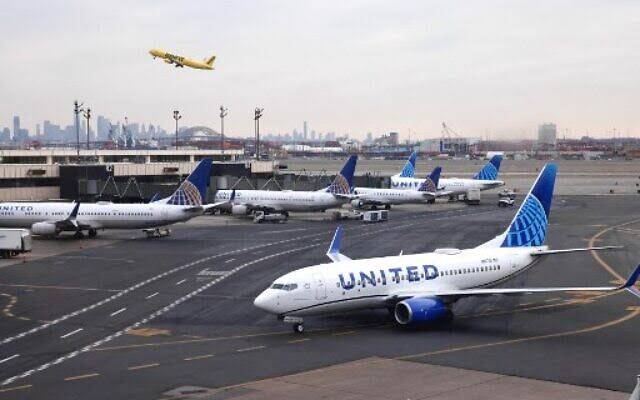
Three major international airlines—United Airlines, Delta Airlines, and British Airways—have announced that they will be suspending flights to Israel beginning Thursday. This decision has sent ripples throughout the global aviation industry, travel sectors, and geopolitical arenas. The halt in flights is attributed to escalating security concerns in the region, a decision that underscores the volatility and potential risks associated with the current situation in Israel. This article delves into the reasons behind the suspension, the implications for passengers and the airlines, and the broader geopolitical context.
The primary reason cited by United, Delta, and British Airways for halting flights to Israel is the rising security concerns in the region. Over the past few months, tensions have escalated significantly, leading to increased violence and instability. Recent reports indicate a surge in rocket attacks and military engagements, which have heightened the risk for civilian air travel.
The decision was made following consultations with various security agencies and governments, who have advised against non-essential travel to the region. The airlines have emphasized that the safety of their passengers and crew is their utmost priority, and the suspension of flights is a precautionary measure to avoid any potential threats to their aircraft.
The suspension of flights by these major airlines will undoubtedly have a significant impact on passengers. Many travelers who had planned trips to or from Israel will now find themselves in a difficult situation, needing to rearrange their travel plans. For those already in Israel, finding alternative routes out of the country may prove challenging, especially as other airlines may follow suit or increase prices due to heightened demand.
Travelers with imminent plans are advised to contact their airlines immediately to discuss their options. Airlines are expected to offer refunds or rebookings, although the latter might be limited due to the uncertain duration of the suspension and the availability of alternative flights.
Moreover, the halt in flights may also affect business travelers and the tourism sector in Israel. The country, which relies heavily on tourism, could face significant economic impacts if the suspension is prolonged. Hotels, tour operators, and other businesses in the hospitality industry might experience cancellations and a downturn in bookings, affecting their revenue streams.
For the airlines themselves, halting flights to Israel represents a complex logistical and financial challenge. Rerouting planes, rescheduling crew, and handling customer service issues related to the cancellations will require significant resources. Additionally, airlines will lose revenue from the suspended routes, which could affect their financial performance.
United Airlines, Delta Airlines, and British Airways have all been working to recover from the financial strains of the COVID-19 pandemic, and the suspension of a key route such as Israel could pose further financial setbacks. The Middle East is a crucial region for international airlines, not just for direct flights but also as a hub for connecting flights to Europe, Asia, and beyond.
The airlines will need to carefully manage their resources and communications to mitigate the negative impact of the suspensions. They will also need to coordinate with governments and security agencies to determine when it will be safe to resume flights.
The decision to suspend flights to Israel by these major airlines cannot be viewed in isolation but must be understood within the broader geopolitical context. Israel has long been a focal point of regional tensions, and the recent escalation has further complicated the situation. The ongoing conflict, involving various factions within and outside Israel, has led to a deteriorating security environment.
The international community has been closely monitoring the situation, with various governments issuing travel advisories and calling for de-escalation. The United States, in particular, has been engaged in diplomatic efforts to broker peace and ensure the safety of its citizens abroad.
The suspension of flights by these airlines also sends a strong message about the seriousness of the situation. It highlights the airlines’ responsibility to prioritize passenger safety over commercial interests and underscores the broader international concern about the escalating conflict.
The immediate suspension of flights to Israel by United, Delta, and British Airways might be seen as a temporary measure, but it could have long-term consequences for international travel and regional stability. If the security situation does not improve, other airlines may also decide to halt flights, leading to further isolation of Israel and increased difficulties for travelers.
The tourism industry, a vital part of Israel’s economy, could suffer prolonged setbacks. The country’s image as a safe and attractive destination might be tarnished, affecting future travel decisions by tourists and business travelers alike.
Moreover, the suspension could lead to broader economic implications. Israel is a hub for technology and business, with numerous international companies having operations there. The inability to travel freely could affect business operations, international collaborations, and economic growth.